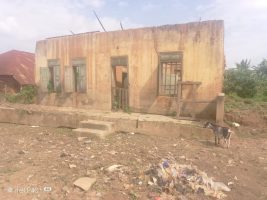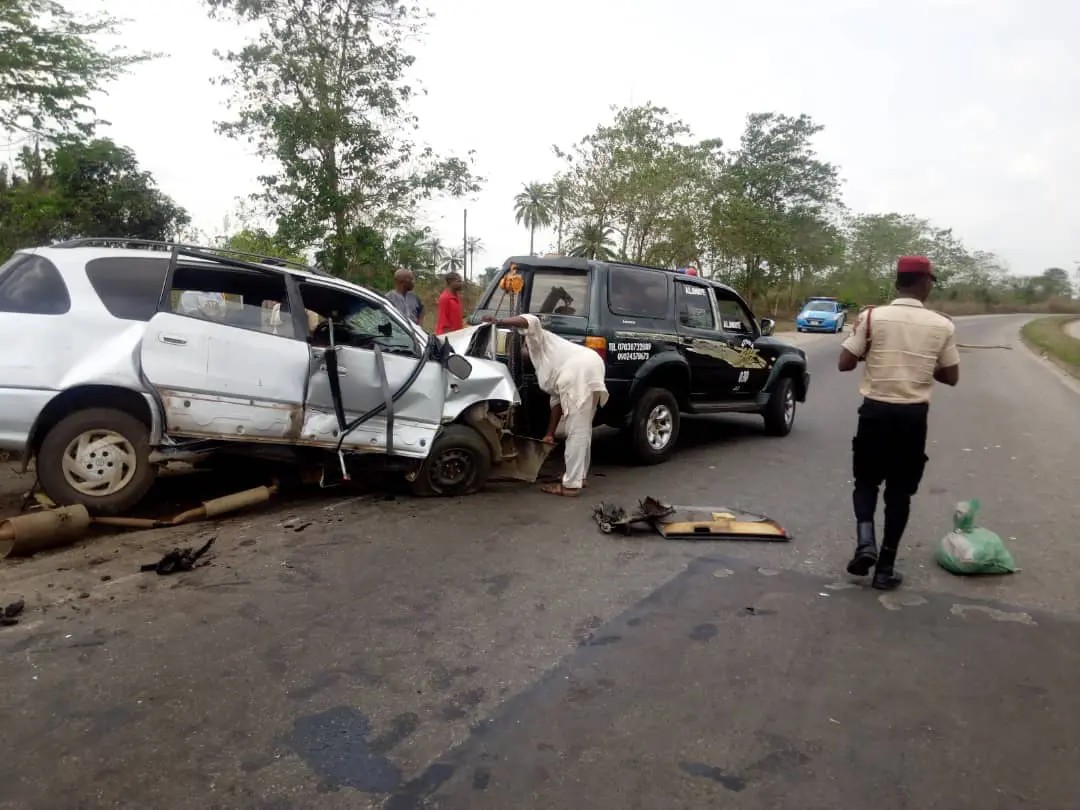Twenty-nine years after the Ife–Modakeke war in Osun State turned neighbourhoods into graveyards, the residents still live in ruins, trauma, and silence. Though guns have long gone quiet, some homes abandoned, and weeds partially cover roofless compounds, the memories of survivors remain stubborn reminders of one of Nigeria’s age-long intra-ethnic feuds, OLUWOLE IGE reports.
Nearly three decades later, chilling echoes of the 1997 Ife–Modakeke War in Osun State still haunt the ancient towns. The wounds may have faded from the headlines, but they remain etched in ruins, visible in the skeletal remains of buildings swallowed by weeds, some overtaken entirely by wild undergrowth, slowly becoming forest.
Children of those who once lived in the now-collapsed homes often pause in silence as they walk by, the ruins forcing back memories they never lived, but inherited, tales of bloodshed, sudden ambushes, and houses turned to battlegrounds.
It was a war not fought on conventional fronts, but in neighbourhoods and farmlands, a series of brutal skirmishes where no age was spared. Over a thousand lives were lost, many cut down by machetes, bullets, or potent charms made to shield warriors and wrought harm on their enemies.
The fighting knew neither mercy nor method; it was visceral, intimate, and unforgiving. For those who witnessed it firsthand, the prayer remains constant: never again.
Families were torn asunder, particularly in homes where love defied boundaries. Ife husbands and Modakeke wives, or vice versa, suddenly found themselves enemies under one roof. The war didn’t just destroy buildings; it broke kinship, poisoned trust, and stitched fear into the communal fabric.
Yet, 29 years later, the ruins remain untouched. There is little sign that the government has returned with the kind of healing presence or meaningful development that could replace scars with renewal. The silence from the state is as loud as the cries once heard across the fields of fire.
The past lingers, not just in stone and weed, but in memory and neglect. Though the age-long civil war between Ife and Modakeke has receded into history, the trauma and physical devastation of that bitter conflict remain stark, etched into the landscape, the memories of survivors, and the persistent cries for justice.
In Modakeke, especially, relics of the violence continue to stir feelings of abandonment, as victims demand overdue compensation for lives lost and properties destroyed.
Widely regarded as Nigeria’s oldest intra-ethnic conflict, the Ife–Modakeke crisis has spanned nearly two centuries, marked by periodic explosions of violence. Historical accounts document at least seven major clashes: 1835–1849, 1882–1909, 1946–1949, 1981, 1983, 1997–1998, and the final major eruption in 2000.

The most recent round of hostilities was sparked in 1997 when Modakeke residents renewed their agitation for a separate local council. Responding to the pressure, the late military Head of State, General Sani Abacha, approved the creation of Ife East Local Government Area, carved out of the old Ife North and Ife Central. However, a new controversy quickly emerged: where to site the council headquarters.
While Ife indigenes lobbied for the headquarters to be located in their township, Modakeke people insisted it should fall within their domain. Though the government initially earmarked Oke D.O. in Modakeke, it eventually announced Oke-Ogbo in Ile-Ife as the location, triggering widespread resentment and violent backlash.
To douse tension, the Osun State Government under Chief Bisi Akande in 2002 created the Modakeke Area Office, giving the community partial administrative recognition. Today, Modakeke has three electoral wards under the Ife East Local Council. But even with the political compromise, the human and economic cost of the war remains unresolved.
More than two decades later, victims in Modakeke still grapple with the consequences of the conflict. A recent visit to neighbourhoods like Isale Agbara, Akrabata, Oke Eso, and Surulere showed unmistakable scars: burnt and abandoned buildings, roofless homes overtaken by weeds, and decaying infrastructure that once held family histories.
A 2001 report by the Centre for Peace and Conflict Studies at the University of Ibadan estimated that over 2,000 lives were lost in the 1997–2000 clashes alone. Though official compensation was promised at various points, implementation remains elusive.
“These buildings you see were once thriving homes,” said Adekunle Ogunbiyi, 48, whose family house in Oke Eso was torched during the 1997 violence. “My father lost everything. We’ve not been able to rebuild because there’s simply no money.”
Indeed, many of the structures, made of burnt bricks and now crumbling, are considered unsafe for habitation. Some have been sold off cheaply to property developers who are quietly driving urban renewal, but without regard for the historical and emotional significance of the sites.
Worse still, some of the derelict buildings have become havens for hoodlums and drug users, raising security concerns among residents. Investigations by The Guardian also revealed that no comprehensive compensation scheme has been initiated by either the state or federal government, despite repeated demands from Modakeke community leaders. The lack of closure, many say, continues to breed mistrust, apprehension and a sense of marginalisation.
“Every time I walk past my father’s ruined house, it reminds me of the day we fled,” said Adeola Adebayo, a second-generation survivor. “We want compensation, not for revenge, but to rebuild and move on.”
Calls are now mounting once again for the Osun State Government and the Federal Government to revisit the issue of compensation, especially as rebuilding efforts across similar conflict zones in northern Nigeria have benefited from intervention funds.
Narrating how they continue living in trauma daily, Mrs Bose Oyedeji, 51, told The Guardian how her late father lost two properties, one at Oke Eso, the other on Akrabata Line 1, during the crisis. “We haven’t rebuilt the houses; they are still in ruins. Trees have even sprung up in the compounds. My father was never compensated, and the stress and fear hastened his death. The war robbed us of everything,” she said.
Though she expressed gratitude for the current peace between Ife and Modakeke, Oyedeji urged the government to consider compensation as a form of justice and healing. “We’ve moved on, but memories of what we lost are hard to erase. We thank God that both towns now live like one. There’s no fear anymore,” she added.
Another victim, Mr Ayanwale Oluwagbemi, a 50-year-old commercial motorcyclist, said his father’s house in Isale Agbara was razed during the hostilities. “Part of it is still bushy, uninhabitable. I stay in the little area left. There is no money to rebuild, and we feared it might be attacked again,” he said.
He recalled the chaos and insecurity of that time. “We couldn’t sleep. Our livelihoods were cut off. We only survived by God’s grace. If two people stood, you couldn’t tell who would survive. It was horrible.”
While grateful for the efforts of the Ooni of Ife and the Ogunsua of Modakeke in sustaining peace, Ayanwale stressed that compensation remains necessary.
“If there’s no assurance that it won’t happen again, what’s the point of rebuilding? But if the government assures us of lasting peace and development, it will give people confidence.”
He lamented that overgrown relics have become commercial logging zones. “Big trees now grow in old compounds; sawmillers come to cut them. It’s disheartening.”
The National President of the Modakeke Progressive Union (MPU), Prof. Peter Olawuni, described the destruction as “heart-rending,” noting that many previously vibrant areas have become ghost towns.
“The trauma from the war was unimaginable. People who suffered from stress-related illnesses couldn’t feed themselves and were displaced. Many never recovered.”
The don, who teaches Urban and Regional Planning at Obafemi Awolowo University (OAU), said rebuilding peace must go hand-in-hand with reconstruction. “People are happy that peace now reigns. But both communities must stay focused, especially the youth. There’s no gain in war,” he said.
Lamenting how the war left only lessons of loss, the Ogunsua of Modakeke, Oba Joseph Olubiyi Toriola, said the crisis forced many to flee their homes, leaving entire neighbourhoods in ruin. “What you see now are relics and ruins. Some people are buying and rebuilding, but the scars remain. I pray we never witness such again.”
He praised the role of the Ooni of Ife, Oba Enitan Adeyeye Ogunwusi, in preserving peace, describing him as “a man of peace” and a key reason for the calm the two towns now enjoy. “If there’s any threat to peace, we call each other immediately. We hold meetings with the MPU and elders in Ife to resolve issues before they escalate.”
To further promote peace, the monarch said Modakeke launched Ogunsua Radio, which educates and sensitises residents, especially youths, on peacebuilding, agriculture, and community development. “We use churches, mosques, and youth organisations to preach peace. We’ve made much progress through this approach.”
On calls for compensation, Oba Toriola noted that while the idea is noble, the lack of administrative organisation remains a hurdle.
“In other countries, compensation follows quickly after such destruction. Here, we talk about committees, but implementation is the problem. Are people ready to be honest and do the right thing?”
He said that while government efforts are ongoing, more must be done to prevent future crises. “It’s not just about money. Let the government address the root causes, give people a sense of belonging, and ensure long-term security. That will be assuring more than anything else.”
Oba Toriola added that both federal and state governments must invest more in road infrastructure to accommodate the region’s growing population and promote economic growth. “We are seeing new schools, banks, colleges, and hospitals springing up. Peace brings development, but we need good roads too.”
When contacted, the Chief Press Secretary to the Osun State Governor, Olawale Rasheed, said Governor Ademola Adeleke’s administration did not make any promises of compensation to victims of the Ife–Modakeke crisis.
According to him, such promises were made during the tenure of former Governor Bisi Akande. He pledged to raise the matter with the appropriate authorities to provide a more informed response.






